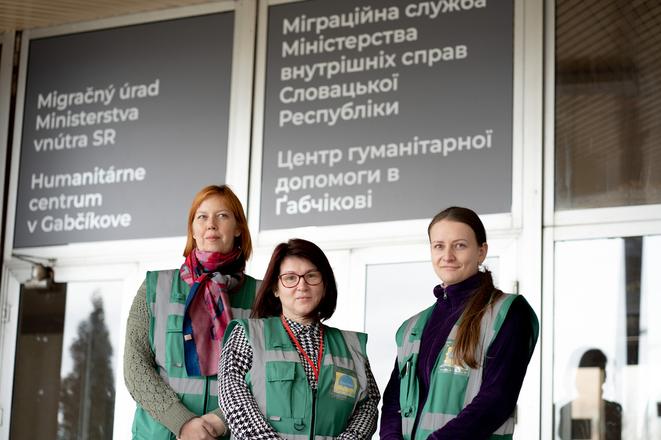Today, we mark the 20th anniversary of the devastating Canal Hotel bombing in Baghdad, Iraq. This tragic event claimed the lives of 22 United Nations staff, civil society partners and civilians, reminding us of the risks and sacrifices made by humanitarians worldwide.
It is also a time to commemorate the 15th World Humanitarian Day, honoring those who tirelessly serve humanity in the face of crises.
It may be easy to overlook Slovakia’s humanitarian assistance Ukrainian refugees amidst massive on-going crises and conflicts in places like Sudan, Haiti, Syria and Yemen. However, Slovakia’s effective and compassionate support of Ukrainian women and children would have not been possible without the dedicated individuals who possess the heart and spirit of true humanitarians.
This is the story of first responders – firefighters, police officers, social workers, teachers, doctors and psychologists – but of anyone who donated their time, attention and understanding or provided safe spaces, food or clothes to Ukrainian families. And those who helped a Ukrainian child to feel accepted and included, or who showed empathy towards the immense challenges refugees face every day.
It is the story of a shared humanity, a state of mind and an ability to both empathize and act, all of which are common to humanitarians worldwide.
Fear
As crises unfold, fear becomes an inevitable emotional response for those at the forefront of humanitarian efforts. I remember the words of Natalia, Coordinator of at the UNICEF-supported Blue Dot in Košice, who told us how shocked she was of first hearing the news of war breaking out just kilometres away from her home.
Humanitarians also absorb the very same fear they see in the eyes of those they are assisting. The emotional distress can even result in what we call vicarious – or “second-hand” – trauma, and it shows just how impactful exposure to human suffering can be.
This emotion, whether in the face of war or natural disasters, is a reminder of the immense challenges humanitarians confront, as well as a force that drives us all, knowing that if we are afraid, children are probably frightened.
Commitment
Despite that fear, humanitarians persist in their unwavering commitment to support those in need. Supporting refugees means committing to a complex and emotionally heavy work of long hours spent away from home. But like Tatiana, a pediatrician from a clinic UNICEF supports in Bratislava, said: “If we don’t help them, nobody will.”
The commitment displayed by social workers, firefighters, teachers and pediatricians tirelessly supporting Ukrainian refugees for a year and a half is commendable. Their dedication and their ability to make a difference reflects the true essence of humanitarianism, as they often prioritize the well-being and safety of those who need them ahead of their own.
Resilience
In the midst of the ongoing crises that plague our world, resilience becomes the backbone of humanitarian response. Today, our response in Slovakia shifts from providing emergency assistance to Ukrainian children to supporting their inclusion in schools, health and protection systems and society overall, but the spirits of Slovak humanitarians remain unchanged.
I like the mantra “in every crisis there is opportunity.” With this humanitarian response, Slovakia embraced one of the hardest challenges of its very recent history, and I know it made it more resilient, and more prepared to respond to future challenges.



 Social workers Katka, Melinda and Žaneta in front of the Humanitarian Center in Gabčíkovo, which hosts close to 1,000 Ukrainian refugees. (source: UNICEF/UN0783079/Kazimirova)
Social workers Katka, Melinda and Žaneta in front of the Humanitarian Center in Gabčíkovo, which hosts close to 1,000 Ukrainian refugees. (source: UNICEF/UN0783079/Kazimirova)